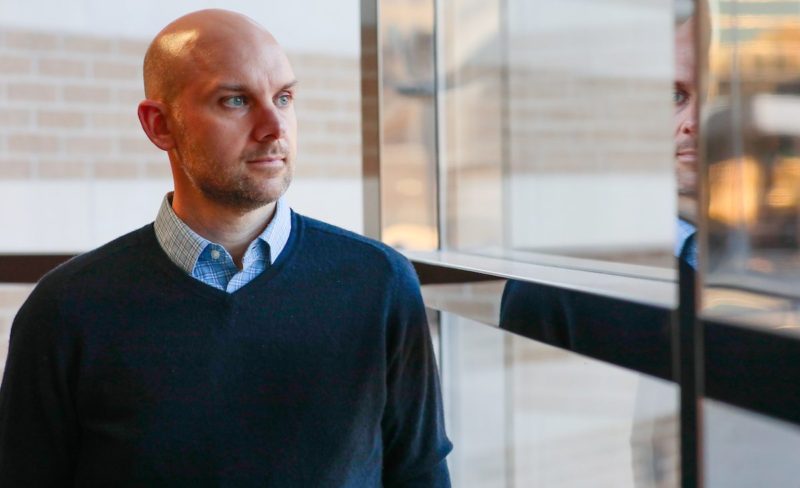COVID-19’s effect on the workplace was captured in a phrase that millions of journalists and business leaders around the world adopted seemingly overnight: the Great Resignation.
No one was more surprised by the phrase’s popularity than Anthony Klotz, the associate professor of management at Texas A&M University who coined the term.
“It still seems surreal,” he said about the fact that an online search found more than 232 million references to the term at sites such as BBC, NPR, Forbes, and even dictionary.com.
Klotz, who joined the Texas A&M faculty in mid-2019, researches the ways in which employees resign from their jobs and how leaders respond to, and manage, employee resignations.
“The Great Resignation” refers to the decisions of millions of workers to quit their jobs during the pandemic. In November 2021 alone, for example, a record 4.5 million American workers left their jobs, bringing the 12-month total to 68.7 million, according to the U.S. Bureau of Labor Statistics.
In broader terms, Klotz said the Great Resignation describes how COVID-19 upended the centuries-old notion of what work is and how it should be done.
“I knew from talking to my students, workers and business leaders that the pandemic had changed how many people felt about work,” he said. “Workers saw that quitting their jobs gave them a chance to take control of their personal and professional lives.”
Klotz spent more than a decade at a Fortune 500 company before switching to an academic career, experience that gave him first-hand insight into the human dynamics of the workplace. Later, he became “hooked” on studying the psychology of management while working on his MBA at Creighton University.
“The topic of quitting is never far from my mind,” he said. Because of this, Klotz was doubtful when others were optimistic that the economy would recover and life would return to normal soon after the COVID-19 vaccine rollout in late 2020.
“I noticed four trends unique to the pandemic that I believed would each independently contribute to higher than normal levels of resignations in the United States, and that would lead to a massive wave of resignations when combined,” he said.
The trends were an existing backlog of resignations as some workers chose to stay in their jobs because of the uncertainty resulting from the pandemic, widespread burnout among workers, widespread re-evaluation of priorities and values among workers and the reluctance of some workers to give up remote work.
The Great Resignation catapulted from scholarly insight to viral sensation thanks to an interview for Bloomberg News in May 2020.
“I shared my thoughts about these trends with a reporter who was writing a story on the ‘right way’ to quit your job,” Klotz said. “Then she interviewed me again specifically about this prediction. When that story was published, it went viral.”
Since then, experts have analyzed the Great Resignation from many angles, including which industries are hit hardest, its implications for specific industries such as IT and healthcare and how Gen Z and millennials are driving the trend.
Klotz said the main takeaway for organizations is that they must invest more than ever in their employees if they want to stay competitive, but how they do it is up to them.
“This could be by offering flexible schedules or higher pay, or better benefits to working parents, or by building a truly inclusive work environment,” he said. “As long as the investment is aligned with the organizational culture, this could bring a long-term competitive advantage.”
On the employee side, Klotz encourages workers thinking of quitting to first discuss their reasons with their managers.
“Companies are very keen to reward loyalty right now, and so it is a great time to ask for changes in order to turn the job you have into the job you want, without leaving,” he said.
Klotz expects “quit rates” to be higher than average for another two to three years, or even longer, for two reasons.
First, turnover is contagious. “When one employee leaves, others start thinking about doing the same,” he said.
In addition, as organizations offer different ways of working, they will attract new workers but also will lose some existing workers.
“Workers searching for jobs that provide the best fit for their life situation, their skills and their values will fuel higher-than-usual resignation rates for some time,” he said.
Klotz said he is glad that the publicity he has received has increased the visibility of Texas A&M and his department.
“The Department of Management has had the reputation of being one of the top management departments in the world for over three decades,” he said. “It is an honor to be a part of it, and for me, the best part of being on the faculty is the people: my faculty and staff colleagues, the Ph.D. students and MBA students. They’re the best.”
This article was first published by Texas A&M University.
